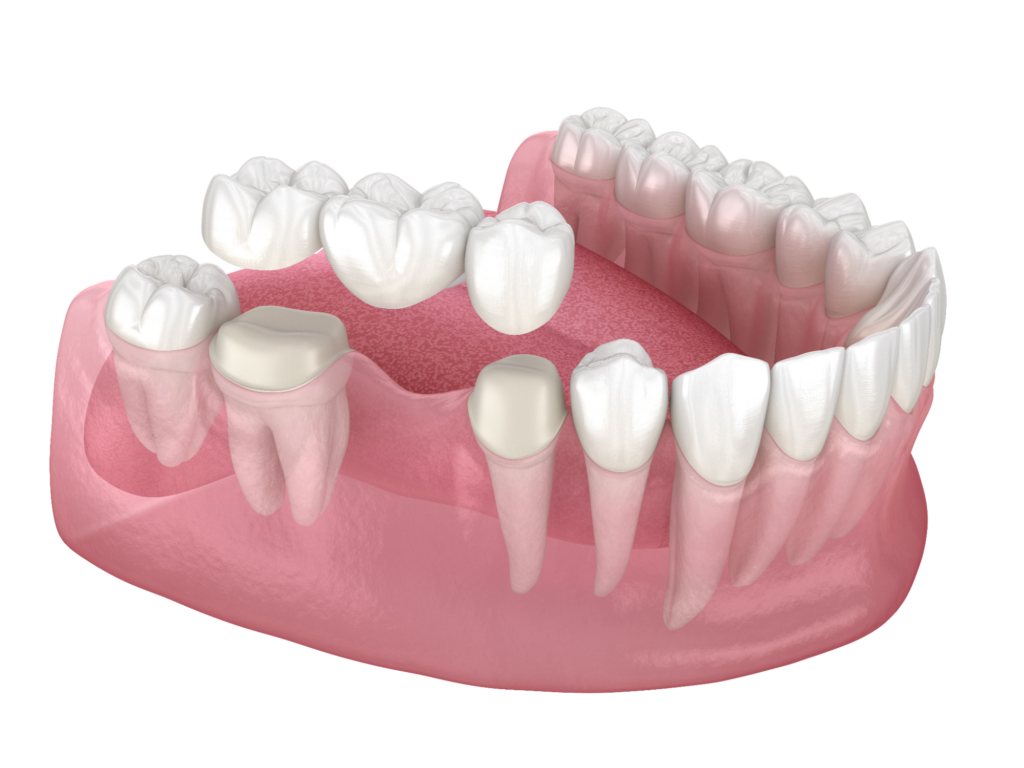Your temporomandibular joint connects your mandible (lower jaw) to your skull. This joint allows you to move your jaw up and down, side to side, and back and forth. Temporomandibular joint dysfunction, often shortened to TMD, refers to a number of symptoms that affect the bones, muscles, and ligaments of this joint. According to the Australian Journal of General Practice, TMD conditions affect up to 60–70% of the population.
TMD is commonly caused by jaw injuries or dislocation, genetics, arthritis, and stress. A frequently reported symptom of TMD is hearing a clicking, popping, or grating sound when you chew or open your mouth. Symptoms vary from person to person. Other symptoms of TMD include:
- Pain or sensitivity in your jaw, around your ears, or neck
- Problems chewing and swallowing
- Difficulties opening and closing your mouth
- Grinding your teeth
- Clenching your jaw
- Headaches
- Dizziness
- Earaches and hearing issues
- Locking of the jaw
TMJ Treatment Options
There are a number of TMJ treatment options available. Selecting a treatment largely depends on the severity of symptoms and any identified underlying causes of the disorder. Some of the more common treatment options for TMJ are as follows:
Medication
There are several medicines, both over-the-counter and prescription, that can alleviate the symptoms of TMJ disorder. Pain relievers, such as paracetamol and ibuprofen can help to reduce pain and inflammation. Doctors may prescribe muscle relaxants to reduce clenching and teeth grinding and anti-anxiety medication when grinding or clenching is due to anxiety or stress.
Appliance Therapy
A mouthguard, also called a nightguard or splint, is an acrylic dental appliance that you wear over your teeth. When you wear one at night, it prevents your top and bottom teeth from coming into contact with each other. This reduces clenching and grinding your teeth while you sleep and protects your teeth against damage. Wearing a mouthguard can also help to stabilise and position the jaw. Dentists, including those at The Dental Family Beaumaris, can create a custom-fitted splint for you.
Occlusal Equilibration
Occlusal equilibration is a procedure that your dentist may carry out to adjust your bite. It involves minor reshaping of the teeth so that they fit together correctly when you close your mouth. This can help to reduce the symptoms of TMD and prevent damage to your teeth from incorrectly closing your jaw. Occlusal equilibration can allow the muscles around your jaw to relax and prevent clenching and grinding.
Orthodontics
Orthodontics is the use of dental devices such as braces. Although usually thought of for cosmetic purposes, orthodontic braces can reduce some of the symptoms of TMD. By aligning your teeth, braces can fix your bite which can reduce or stop teeth grinding and clenching.
Maxillofacial Surgery
Maxillofacial surgery is a type of surgery that is carried out on your lower face. Surgery to eliminate TMJ symptoms is only considered in severe cases when the non-invasive treatments have been unsuccessful. In such cases, surgeons perform arthroplasty, or open-joint surgery, to repair, reposition, replace, or remove parts of your temporomandibular joint.
What to Do If You Think You Have TMD
If you believe you have TMD, it is important to visit a dentist for expert diagnosis and treatment. To determine whether your symptoms are due to TMD, a dental professional will ask you about the symptoms you are experiencing, review your medical history, carry out a physical examination of your mouth, teeth, and jaw.
Once a diagnosis has been made, they will work with you to develop a plan to manage your symptoms and treat your TMD. If you’re experiencing TMJ symptoms, it is essential to seek treatment as soon as possible. Until your appointment, there are a number of things that you can do to help reduce the pain and discomfort of TMD. To ease your TMJ symptoms, try:
- Eating soft foods
- Avoiding chewing gum and tough foods
- Avoiding opening your jaw extremely wide
- Practising relaxation techniques to reduce stress
- Applying heat or ice to the affected area
Summary
TMJ disorders can have a significant impact on your quality of life. The symptoms of the disorder range from mild pain to your jaw being locked open or closed. There are various treatment options available that can help to ease your symptoms and improve your quality of life. If you’re experiencing any symptoms of TMD, it is important to seek dental help so you can start getting treatment that is tailored to your needs.
Our team of skilled and experienced dentists at The Dental Family Beaumaris can diagnose TMJ disorder and establish the best treatment plan for you. Call us today on 03 9589 4400 to discuss your TMJ treatment options.
Read More:
An Easy Guide For Which Type of Tooth Filling is Best for Your Needs


